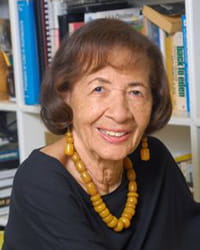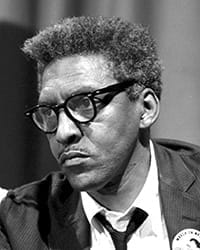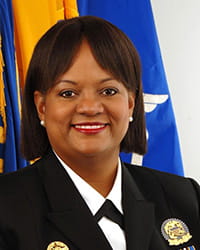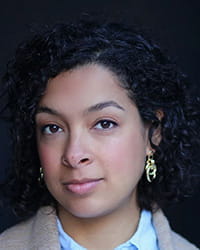One of America’s greatest strengths is its rich diversity. African Americans have made significant contributions across a variety of fields that have impacted society and shaped our cultural landscape into what it is today. From inventors to scientific discoveries to effecting positive social change, Black contributions have led the way to many famous firsts in American history.
Some of America's most prominent Black figures include George Washington Carver, who created nearly 300 products from peanuts, and Rosa Parks, who sparked the Montgomery Bus Boycott and helped initiate the Civil Rights Movement. We celebrate Shirley Chisholm, who was the first African American woman elected to the U.S. House of Representatives, and honor Dr. Martin Luther King, Jr. for his profound leadership in advancing civil rights.
There are many Black pioneers who are often not highlighted, and Walden University Black faculty and staff are shining a light on leaders who have impacted their professions and are inspiring generations of new leaders.

College of Nursing
Dr. Jamil Norman, academic coordinator for the Tempo Learning® Bachelor of Science in Nursing (RN-BSN) program
Dr. Betty Smith Williams advocates for nursing education, and, in 1956, became the first Black nurse to be hired as an educator in the college setting in California. She is also a co-founder of the National Black Nurses Association (NBNA). Dr. Williams’ work has focused on increasing diversity in nursing and nursing education, which continues to be a critical need. The 2017 National Nursing Workforce Survey indicated that minority nurses make up just 19.2 percent of the workforce. Dr. Williams has worked to expand leadership opportunities, teach cultural competency, and encourage nurses to become educators to provide students with role models who share their same experiences.

College of Social and Behavioral Sciences
Dr. Brian Ragsdale, senior core faculty and skills development coordinator for the School of Psychology
Bayard Rustin was a Black American leader who worked for civil rights, social justice, nonviolence and gay rights. He did not deny his sexual orientation, during a deeply homophobic time, as he helped create the infrastructure to sustain the Civil Rights Movement. He was a close advisor to the Reverend Dr. Martin Luther King, Jr. and key organizer of the March on Washington for Jobs and Freedom to advocate for the civil and economic rights of African Americans. Through Rustin’s creativity, organizational skills and strong personal relationships, he was instrumental in developing national platforms to ensure the timely messages offered by Dr. King. He was posthumously awarded the Presidential Medal of Freedom, the highest award in the United States, by former President Barack Obama for standing at the “intersection of several of the fights for equal rights.”

College of Health Professions
Dr. Jennifer Edwards, contributing faculty in the Master of Healthcare Administration (MHA) program
Dr. Regina Benjamin served as the 18th U.S. Surgeon General, becoming the third African American woman to hold that position. She was also the first African American woman and physician under 40 appointed to the American Medical Association's Board of Trustees. In 2002, she became the president of the Alabama Medical Association, making her the first African American woman to be named president of any state medical society in the United States. Dr. Benjamin is founder and CEO of the Bayou Clinic, a rural nonprofit health practice in Alabama dedicated to helping all regardless of their financial situations. She rebuilt the clinic three times, following Hurricanes Georges and Katrina and a devastating fire. She now works to promote prevention policies related to obesity, childhood obesity and children’s health.

College of Management and Technology
Dr. Chi Ilogu-Uwechue, contributing faculty in the Master of Business Administration (MBA) program
Social entrepreneur Laura Weidman Powers is the co-founder and former CEO of Code2040. This nationally recognized nonprofit activates, connects and mobilizes the largest racial equity community in tech to dismantle the structural barriers that prevent the full participation and leadership of Black and Latinx technologists in the innovation economy. Powers grew Code2040 from inception to a $7 million organization with a staff of 35 and over 100 partner companies. It serves more than 250 students and 6,000 community members annually. Powers currently works as head of impact at the social innovation fund Echoing Green, and she supported former President Barack Obama’s administration on issues of workplace equity and access to capital.
The Richard W. Riley College of Education and Leadership
Dr. Tina Marshall-Bradley, academic coordinator in the MS in Education program
In the 1980s, Dr. Elaine Paige Witty was one of the leading voices in the country calling attention to the decreasing numbers of Black teachers and the possible impact this could have on Black students in American public schools. Her research focused on the detriment of that significant decrease, particularly in the south where schools were still being integrated. She has been referred to as “The Dean” of education because of her years of advocacy for Black teachers, students and community members. In the 1990s, Dr. Witty co-wrote the book, The Black-White Achievement Gap: Why Solving It Is the Greatest Civil Right Issue of Our Time. She co-authored it with her brother, Dr. Rod Paige, the seventh U.S. Secretary of Education.



